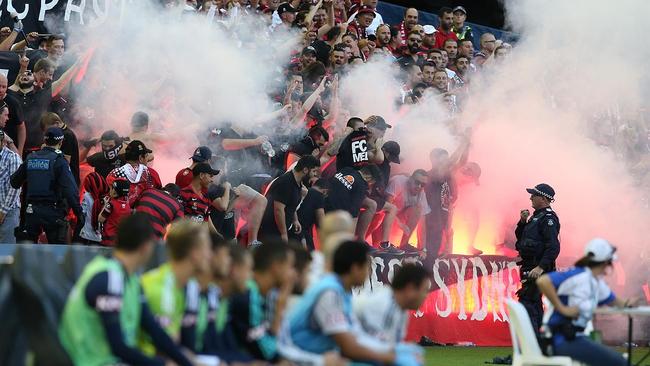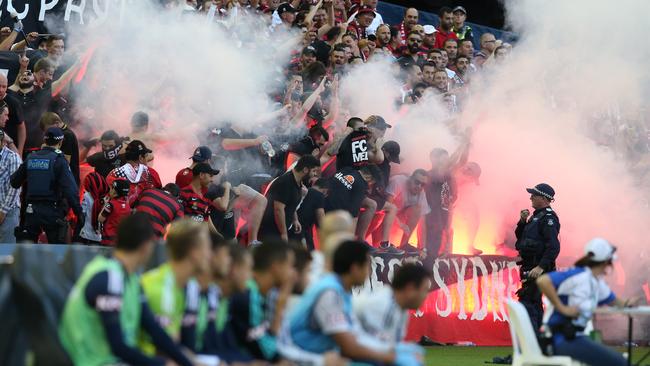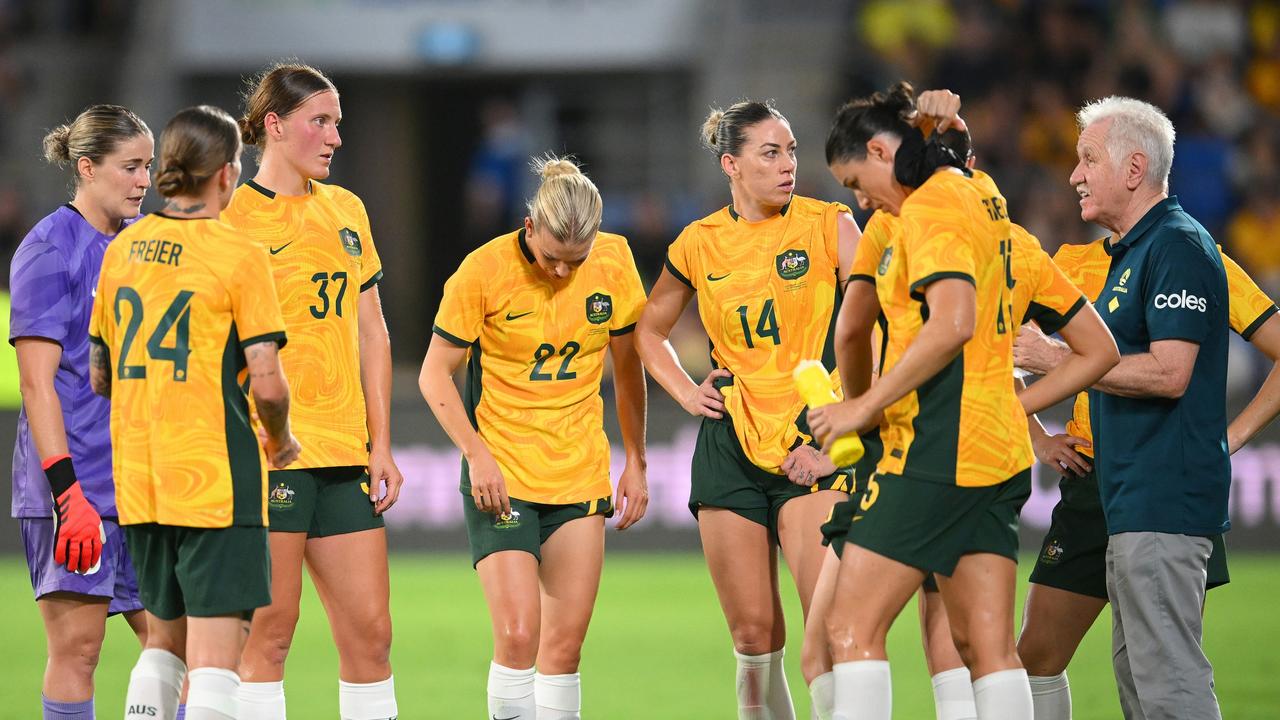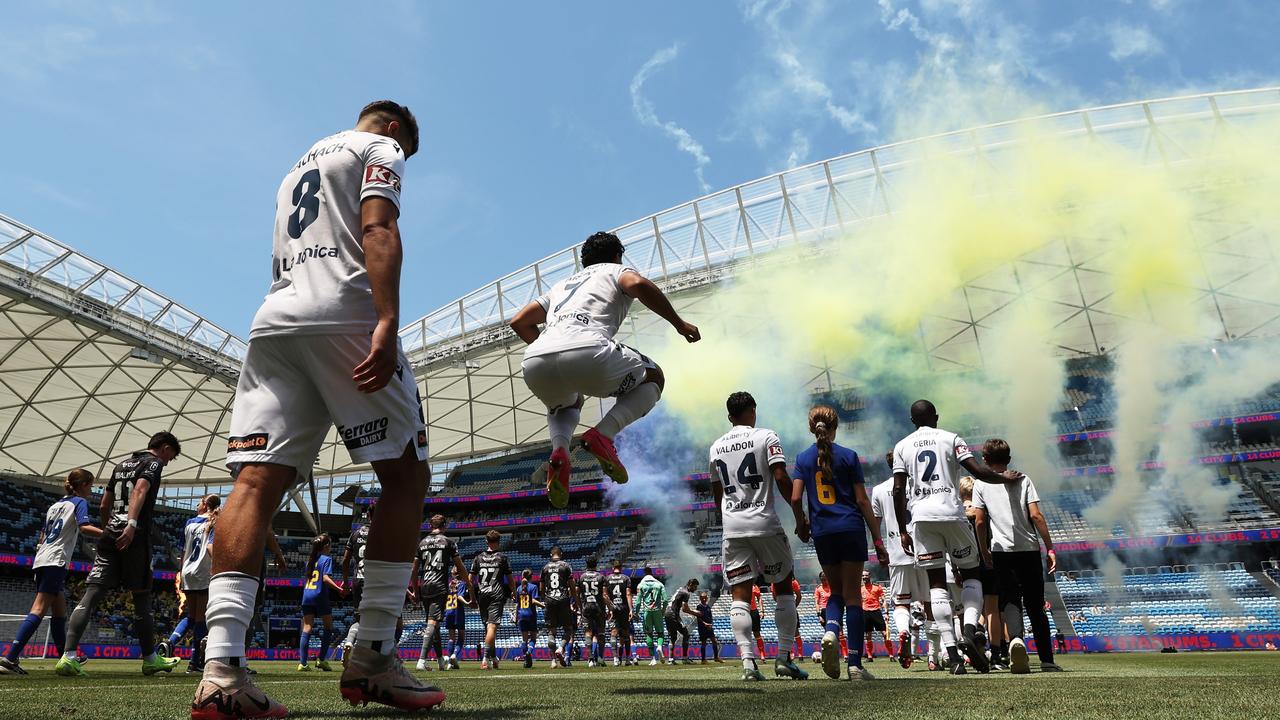A-League clubs must share blame for pandering to self-aggrandising fans who continue to light flares
DO those self-aggrandising football fans who light flares really think they’re “here to take over”? Or is it the clubs’ fault for pandering to these morons, asks RICHARD HINDS.

Football
Don't miss out on the headlines from Football. Followed categories will be added to My News.
WESTERN Sydney Wanderers will learn on Thursday what impact the stupidity of the self-aggrandising fools who confused maritime safety with “active support’’ have had on their title chances.
The most likely punishment for fans igniting a flare and causing the Melbourne Victory game last Saturday night to be delayed is a suspended sentence.
This potential points deduction would hang over the club’s head and compel the Wanderers to confront the issue of fan behaviour. Not perform another front office Poznan.
That is what the Wanderers and some other clubs did last year when confronted with a fan boycott. They turned their back on the problem and left it to the FFA, afraid to offend the sensibilities of ticket-buying, merchandise-wearing supporters.
This is why, as unfair as it might seem, punishments imposed upon clubs — not merely individual troublemakers — are the best way to ensure the only flares at A-League games are worn by ageing hippies.
When A-League fans protested about the punishment of a very small handful of supporters they had legitimate grievances. Particularly the lack of an appeals process for fans unfairly handed life bans.
Reluctantly, the FFA gave the fans a seat at the table. This hesitance was not because the governing body did not respect the supporters’ obvious contribution to the A-League.
It was because they knew they risked emboldening the lunatic fringe. Those who seize upon any apparent sign of weakness to extol the message displayed by some Wanderers fans on Saturday night: “We’re not here to take part, we’re here to take over’’.
Attempting to treat fans with fairness and respect while maintaining the zero tolerance policy necessary to stop isolated incidents escalating was a delicate task. That is why the FFA desperately needed the support of clubs. Particularly those like the Wanderers who have worked diligently to form a mutually beneficial relationship with the boisterous red and black brigade.

But instead of getting the support of clubs, the FFA was undermined by some who were desperate not to be seen siding with supposedly “anti-football’’ elements for fear of offending “active supporters’’.
One club even wrote to the FFA pleading it was very important the Federation alone dealt with fan boycott because the issue was too hot for clubs to handle.
Others — particularly the Melbourne Victory — were opportunistic. They used the boycott to lay the boot into the FFA over everything from the need for an independent A-League to the size of the pea in the referee’s whistles.

Naturally, clubs are entitled to hold the FFA to account. The success of the current administration will be judged largely on the success of the next TV rights deal which must maximise both revenue and exposure.
But using the fan boycott to push other agendas was not only cynical, it was self-defeating. Bashing City Hall merely heightened the false impression the FFA’s attempts to police the small minority of troublemakers was somehow an attack on “real football fans’’ and took the focus from legitimate grievances.
In that context, the problems at the Wanderers-Melbourne Victory game were inevitable. By not merely listening to supporters, but pandering to them, some clubs have vindicated the belief of the moronic fringe-dwellers that they are a law unto themselves.
The Wanderers might complain they are a victim of the idiocy of a small handful of their own fans. But any penalty they and other clubs receive for fan misbehaviour will be a direct consequence of their own squeamishness in the face of fools masquerading as true believers.




